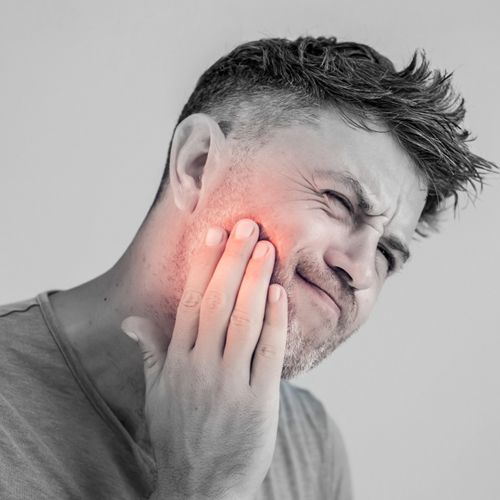An often performed dental procedure, a root canal treatment is designed to salvage a tooth that is severely damaged or infected. This process entails extracting the infected pulp from the tooth and sealing it off to halt the spread of infection. While root canal treatment is highly effective in alleviating tooth pain and preserving oral health, many patients experience post-treatment discomfort. This article will explore how to manage pain after root canal treatment.
What is Post-Root Canal Pain?
After undergoing a root canal, some patients may experience discomfort or pain. This pain typically arises from inflammation of the surrounding tissues, especially in cases where the tooth was severely infected prior to treatment. Cleaning and shaping the root canal can also lead to temporary irritation of the surrounding gums and tissues. Additionally, some patients may experience sensitivity or discomfort when biting down due to the restoration placed on the treated tooth.
How Long Does the Pain Last After a Root Canal?
- The duration of post-root canal pain varies from person to person and depends on several factors. In most cases, any discomfort or pain experienced after a root canal should subside within a few days to a week. However, in some cases, especially if the tooth was severely infected or if there were complications during the procedure, the pain may persist for extended periods.
- Factors that may influence the duration of post-root canal pain include the severity of the infection prior to treatment, the complexity of the procedure, the patient’s overall health and immune response, and adherence to post-treatment care instructions.
Immediate Post-Treatment Care
Following a root canal procedure, taking proper care of the treated tooth and surrounding tissues is essential to minimize discomfort and promote healing. Here are some immediate post-treatment care instructions:
- Take prescribed medications exactly as directed by the dentist near you to manage pain and prevent infection.
- Avoid chewing on the root canal-treated tooth until the numbness wears off to prevent further irritation.
- Stick to soft food diet for sometime as directed.
- Apply an ice pack to the outside of the cheek near the treated tooth to reduce swelling and discomfort.
- Avoid cigar smoking as it slows the healing process.
- Follow any additional instructions provided by your trusted dentist for caring for the treated tooth and maintaining oral hygiene.
Tips for Managing Pain After Root Canal Treatment
Avoidance of Hot and Cold Foods
Temperature-sensitive foods and beverages, such as hot coffee, ice cream, or cold drinks, can trigger sensitivity in the treated tooth. To minimize discomfort, avoid consuming extreme temperatures and opt for lukewarm or room-temperature foods and drinks instead.
Maintain Proper Oral Hygiene
While it’s essential to keep the treated area clean to prevent infection, it’s equally important to avoid aggressive brushing or flossing that could irritate the gums or dislodge any temporary fillings.
Avoid Strenuous Activities
Engaging in strenuous physical activities immediately after a root canal can increase blood flow to the area and exacerbate pain or discomfort. Avoid activities that require heavy lifting, bending, or vigorous exercise for the first few days following treatment.
Elevate Your Head
After undergoing a root canal, to help alleviate swelling and discomfort, rest with your head elevated on a pillow or other raised surface. This positioning can facilitate the drainage of excess fluids from the treated area. You can accomplish this by using an extra pillow or slightly raising the head of your bed. Beyond just reducing inflammation, this approach may also prevent blood from pooling in your head and neck.
Stay Hydrated
It’s important for your health to drink enough water, and it can also help your teeth heal after a root canal. Staying wet helps the body get rid of toxins, keeps cells moist, and improves circulation. Drink 7-8 glasses of water every day, and don’t drink too many sugary or caffeine drinks, as they can make you lose water.
Ways to Relax and Ease Pain and Anxiety
After a root canal, pain and anxiety may linger. Utilizing relaxation techniques can ease discomfort and calm nerves:
- Deep Breathing: Take a big breath in through your nose, hold it for a moment, and then slowly let it out through your mouth. Repeat this process multiple times.
- Progressive Muscle Relaxation: As you work your way up to your head, tighten and relax different groups of muscles. This is called progressive muscle relaxation.
- Guided Imagery: Visualize yourself in a peaceful, serene location. Focus on sensory details like sounds, smells, and sensations.
- Meditation: Pay attention to your breath or a relaxing phrase to become more aware.
- Yoga: Gentle yoga poses and stretches can alleviate tension and promote relaxation.
- Aromatherapy: Relaxing scents include lavender and chamomile. Use essential oils or scented lights to relax.
Conclusion
In conclusion, while post-root canal pain is a common occurrence, it can usually be managed effectively with proper care and attention. By using the advice in this piece and doing what your dentist tells you, you can ease your pain and speed up the dental healing process after root canal treatment. If the pain after a root canal in Webster, TX, is serious or lasts for a long time, you should call your dentist right away to get more tests and treatment. Don’t forget that your dentist is here to help you with all of your oral health needs.
Ready for Relief? Schedule Your Follow-up Appointment Today!
Don’t let post-root canal pain hold you back. Schedule a follow-up appointment at Dr. Teeth Dental Care – Webster and take the first step towards relief. Our skilled staff cares about your oral health and will give you specialized care and support to help you deal with pain and speed up the healing process. Our dental services include teeth whitening in Webster and more. We are experts in root canal treatment and aftercare. Get in touch with us right away to make an appointment and enjoy a healthy, pain-free smile again!


